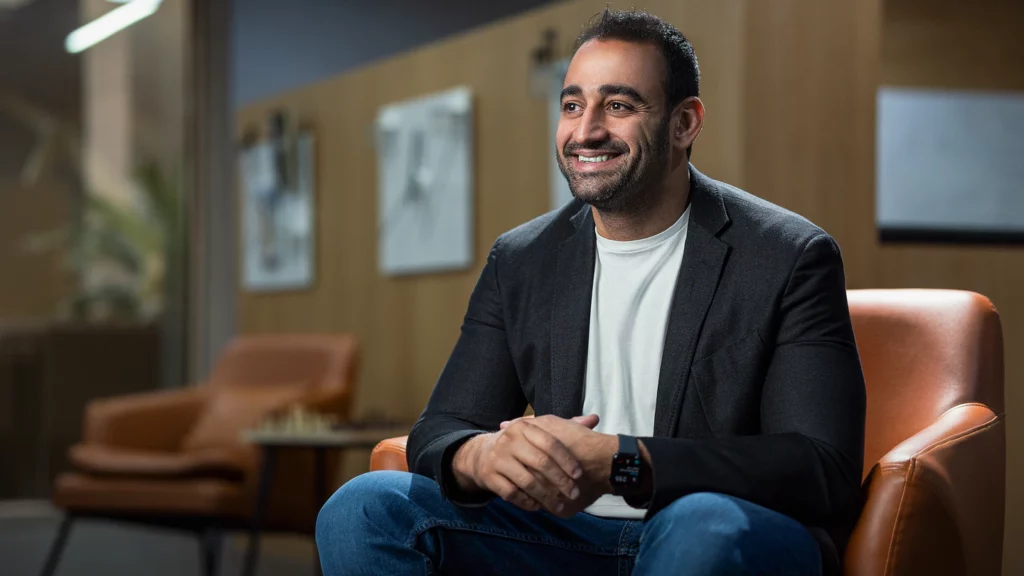Money Fellows, an Egyptian fintech, raises USD 31 million as it digitizes money circles, where individuals form savings and borrowing groups.
Money Fellows, an Egyptian fintech that digitizes money circles, has raised USD 31 million from a wide range of investors, including CommerzVentures, Middle East Venture Partners (MEVP) and Arzan Venture Capital. Other participating investors included Partech, Sawari Ventures, Invenfin, National Investment Company (NIC), 4DX Ventures and P1 Ventures.
Money circles
Money Fellows aims to digitize money circles, more commonly known as Rotating Savings and Credit Association (ROSCAs), a temporary system whereby a group of people agree to pool their resources for a set time and then save and borrow together. ROSCAs work when a group of people come together and agree to pay a monthly amount for a set period of time. Every month, one member gets the total amount paid out to them and this keeps going until all the members are paid.
ROSCAs, according to CEO Ahmed Wadi, represent a USD 700 billion opportunity, globally. The concept is proving popular in developing markets and are known as Esusu or ajo in Nigeria, Kameti or chit fund in India and Gameya in Egypt.
“People looking to borrow can find slots on our platform. People are looking to save, too. So if you are a slot number one, you’re a pure borrower, so we charge a fee. If you’re a slot number two, we charge you slightly less. It decreases the more you’re willing to wait until the end of that ROSCA, where we incentivize the users with one of the most attractive saving incentives in the country,” says Wadi.
Money Fellows charges a one-time service fee of approximately 6% to users who choose its early spots and the fee decreases over time and turns into incentivized interest paid to users at the end of the cycle.
After trialing the system in Europe and the UK, Wadi decided to bring his concept home to Egypt, launching his platform in 2018.
Traditional risks
The risks are obvious when dealing with strangers and so ROSCAs tend to exist among friends or family groups. This limits traditional ROSCAs as participants may find it difficult to access more capital. Money Fellows, aims to create a broader pool of participants — each having been thoroughly assessed before entering — across Egypt. Selected participants can then form and join ROSCA groups through the company’s app.
Money Fellows: Addressing risk
Money Fellows’ system has built-in provisioning and reserve requirements that ensure that customers get paid even when other participants fail to hit their targets. According to Wadi, Money Fellows creates reserves for every ROSCA launched and covers any defaults from those funds.
“The good thing with ROSCAs versus consumer finance is that not everyone has equal credit exposure. So if you’re slot number five, for instance, when you get USD 10,000, you only need to repay USD 5,000 because you historically paid USD 500 in the past five months,” he says. “That’s why we’re more conservative. We don’t limit people to only amounts. We also restrict them to specific slots because we know which slots carry more or less risk.”
Money Fellows: B2B
Money Fellows also has a B2B offering for Egyptian merchants, allowing them to sell their products through the app at discounted rates. The company takes a commission, which supplements the fees generated by the ROSCA system. The plans are to offer further services such as Buy Now Pay Later (BNPL), pensions and cards.
The company currently has over 4.5 million registered users, with approximately 7% of those being active, monthly users and claims to have experienced 8x year-on-year growth. According to Wadi, the average payout ticket per user is approximately USD 1,100.
BNPL services are becoming increasingly popular across the MENA region and Africa as a whole, with valU recently partnering with Sylndr and Endure Capital making acquisitions in the sector.

5 Comments
Pingback: MENA startups: October sees notable deals in Egypt, Saudi and the UAE
Pingback: Payhippo acquires Maritime Microfinance Bank
Pingback: MENA startups raised USD 646 million in October
Pingback: Blnk raises USD 32 million in funding
Pingback: Cellulant and Solv Kenya sign financial services partnership